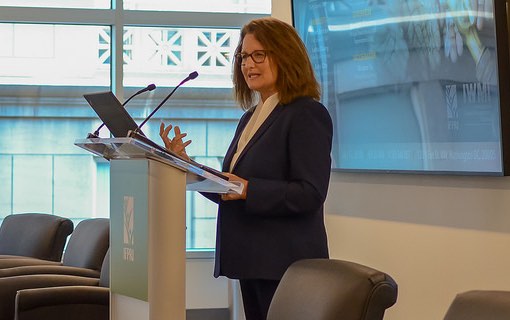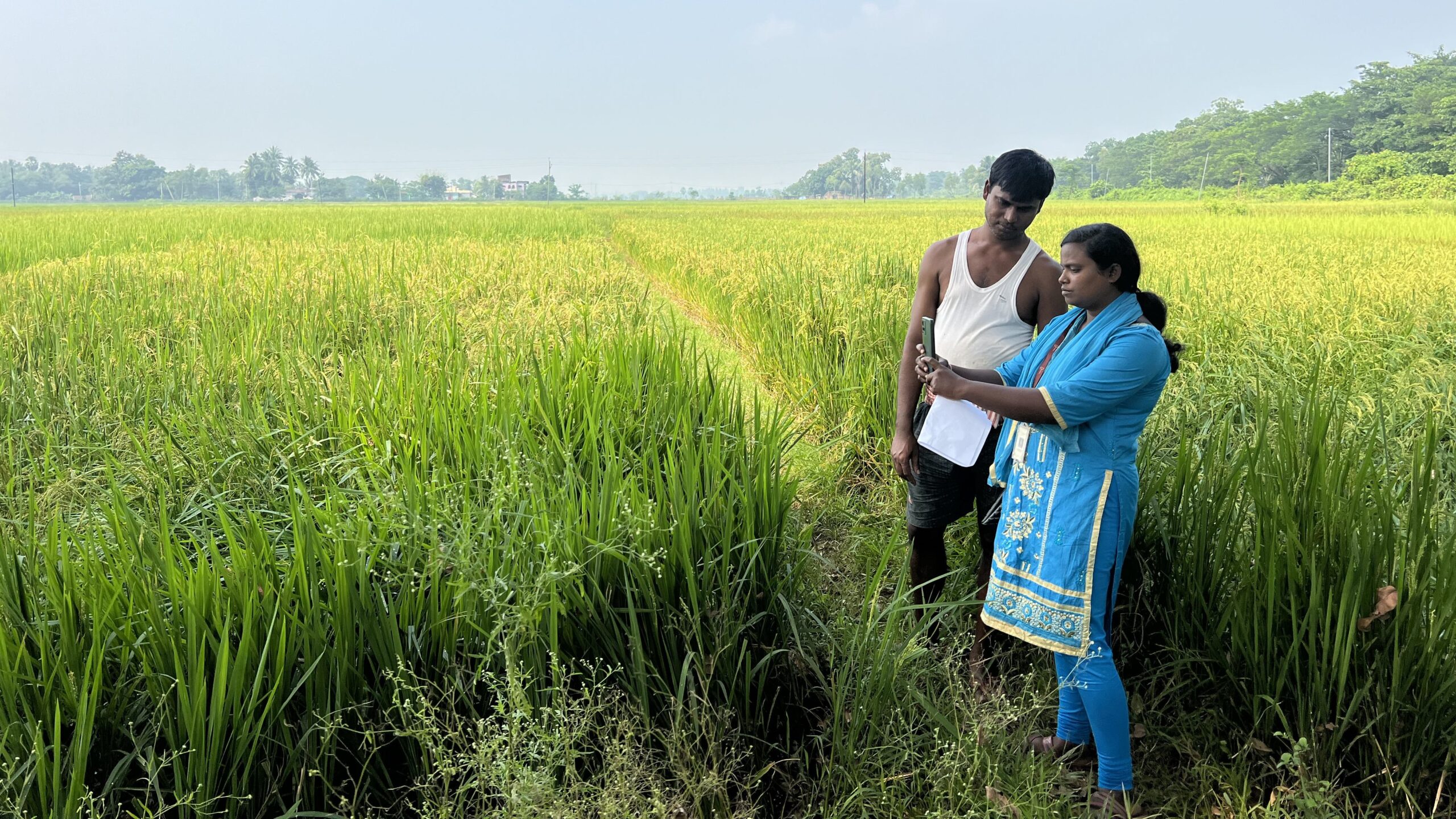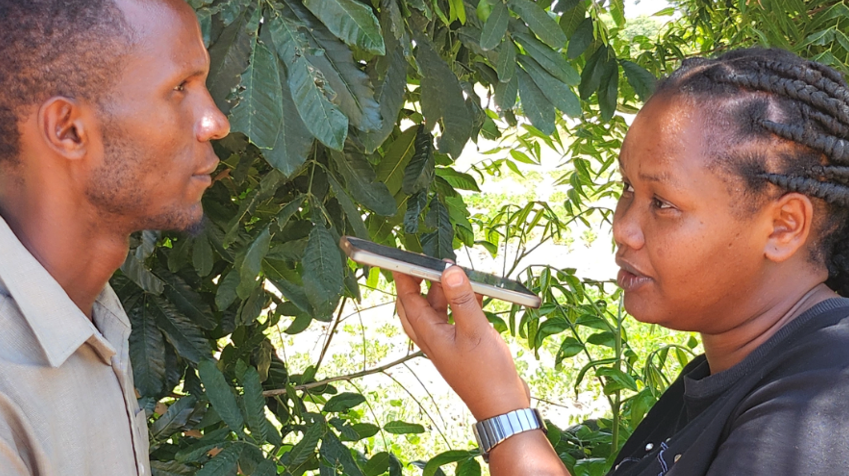Promoting water security requires both increasing productivity to contend with scarcity and managing risks like flooding, drought, and contamination. At a July 12 seminar marking the opening of the International Water Management Institute’s (IWMI) new U.S.-based office at IFPRI headquarters in Washington, D.C., panelists discussed how to meet these critical challenges.
The world is currently not on track to meet U.N. Sustainable Development Goal 6—“ensuring availability and sustainable management of water and sanitation for all”—said IWMI Director General Claudia Sadoff. A “paradigm shift” in water management is needed so that proactive approaches are taken to head off crises before they strike, she said. That will require more integration and cooperation across different sectors.
IWMI Principal Researcher Meredith Giordano shared the organization’s vision for a water-secure world. One promising approach is to use waste as a resource. One example of such a business is a public-private partnership in Ghana that produces organic fertilizer from human and organic municipal waste. IWMI has also developed a drought monitoring system that provides insights on crop health and diversity, and technologies to map potential climate impacts. These tools allow communities to track risks and maximize farmer resilience, Giordano said.
During the panel discussion, Robert Bertram, Chief Scientist at USAID’s Bureau for Food Security, noted that shifts toward sustainable land intensification, girls’ education, and an increased focus on resilience have promoted progress in water management. The Bureau of Food Security has itself been reorganized to correct past fragmentation on water issues, he said, with the aim of fostering a more multisectoral, interconnected approach.
“Where is the voice?” asked Letitia Obeng, former chair of the Global Water Partnership and a current IWMI board member, referring to the need for leadership and mobilization to build water security. The issue needs momentum toward a common vision, to disseminate knowledge, and to bring partners together. Obeng challenged participants to ask: “How can I use what I have to help us work together to improve the resilience of societies?”
To solve its water problems, the world needs more and better data, said World Resources Institute Global Director for Water Betsy Otto. “We don’t know how much water we have, how much is demanded, and how much is consumed,” she said. Water systems managers should build resilience with a circular approach, she said, moving away from linear models of “take, make, dispose,” and toward closed loop systems that safely recycle resources rather than discarding them. The world’s growing cities require multitiered redundant water supplies to better equip them against shocks, Otto said, and community-level social insurance schemes to protect the most vulnerable.
IFPRI Research Fellow Emeritus Mark Rosegrant suggested that better crop breeding can increase global water productivity, citing crops like the semi-dwarf varieties of rice and wheat that use water more efficiently than traditional crops. However, advanced irrigation technologies and precision farming are not a panacea for water, he said—they can either decrease or increase water use. Water conservation requires well-functioning water allocation systems, including legal water rights. In addition, popular subsidies for water, energy, and fertilizer encourage overuse of resources and result in a large greenhouse gas output, Rosegrant said. Reducing those subsidies would provide funds to give direct support to farmers and invest in agricultural research.
The water community must do a better job of communicating these challenges, weaving them into a single narrative that drives the global policy discussion, said Steven Schonberger, the World Bank’s Global Lead for Water in Agriculture. While preventing crises is the goal, he noted, water managers won’t always be able to do that. But they can still realize substantial changes from managing and responding to inevitable crises such as groundwater depletion.
Concluding the panel, IFPRI Director General Shenggen Fan said innovations in technology, institutions, and policies would provide important levers of change in water and food security for the future, and welcomed IWMI to Washington.
Grace Collord is an IFPRI Events Assistant.







